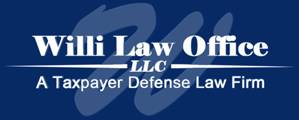The term “tax home” does not have its usual and customary meaning when interpreting issues of federal income tax law.
Generally, your tax home is the entire city or general area where your main place of business or work is located, regardless of where you maintain your personal residence.
Example: You live with your family in Columbus, but work on weekdays in Cincinnati where you stay in a hotel and eat in restaurants. You return to Columbus every weekend. You may not deduct any of your travel, meals or lodging in Cincinnati because that’s your tax home. Your travel on weekends to your family home in Columbus isn’t for your work, so these expenses are also not deductible.
If you regularly work in more than one place, your tax home is the general area where your main place of business or work is located.
In determining your main place of business, take into account the length of time you normally need to spend at each location for business purposes, the degree of business activity in each area, and the relative significance of the financial return from each area. However, the most important consideration is the length of time you spend at each location.
You can deduct travel expenses paid or incurred in connection with a temporary work assignment away from home. However, you can’t deduct travel expenses paid in connection with an indefinite work assignment. Any work assignment in excess of one year is considered indefinite. Also, you may not deduct travel expenses at a work location if you realistically expect that you’ll work there for more than one year, whether or not you actually work there that long. If you realistically expect to work at a temporary location for one year or less, and the expectation changes so that at some point you realistically expect to work there for more than one year, travel expenses become nondeductible when your expectation changes.
If you’re self-employed, you can deduct travel expenses on Schedule C (Form 1040), Profit or Loss From Business (Sole Proprietorship), or if you’re a farmer, on Schedule F (Form 1040), Profit or Loss From Farming.
The importance of correctly determining tax home status was brought out in a 2021 in US Tax Court case. In that case, immigration attorney Akeem Soboyede was licensed to practice law in both Minnesota, and Washington, D.C. and he maintained solo law practices in both Minneapolis in Washington, D.C. Mr. Soboyede’s principal residence was in Minneapolis, and he divided his time between his offices in Minneapolis and Washington, D.C.
In addition to his solo law practice, Mr. Soboyede was also employed by other law firms. He received $46,130 in wages from multiple companies for document review work during 2015, which he properly reported on his 2015 tax return.
Of the $46,130 in wages, $38,548 was for work performed in the Washington, D.C. area and $7,582 was for work performed in Minnesota.
On his 2015 tax return, Mr. Soboyede reported gross receipts from his solo law practice of $10,650 and total business expenses of $26,816, which produced a net loss of $16,166.
The IRS audited Mr. Soboyede’s 2015 tax return, and IRS disallowed hotel charges and apartment rent of $8,400 related to his lodging expenses while working in Washington, D.C.
The Tax Court observed that Mr. Soboyede’s lodging expenses were only deductible, if he was “away from home” as defined by IRS code. In deciding whether his tax home was in Minneapolis or Washington, D.C., the Tax Court applied the three factors:
1) Where did Mr. Soboyede spend more of his time? Mr. Soboyede did not have complete documentation as to his work schedule, but he spent at least 161 days in the Washington, D.C., area, 54 nonworking days in Nigeria, and at least 115 days in Minnesota. Even if he spent the remaining 35 unaccounted-for days in Minnesota, he still spent more than 50% of his total working days in the Washington, D.C., area.
2) Where did Mr. Soboyede have more business activity? Mr. Soboyede produced little evidence to demonstrate that he engaged in greater business activity in Minnesota, even though he controlled the information necessary to show such activity (e.g., billable hour logs, client expense statements, verifiable calendar entries and meetings, or other evidence). As he failed to keep and present accurate records of his business activity, the court counted that heavily against him.
3) Where did Mr. Soboyede derive a greater proportion of his income? Mr. Soboyede reported earning $38,548 from work performed in the Washington, D.C. area and $7,582 from work performed in Minnesota. Even if all of his reported $10,650 gross receipts from his solo law practice were from Minnesota, the majority of his income was earned in the Washington, D.C. area.
Thus, Mr. Soboyede’s tax home was clearly Washington, D.C. and not Minneapolis. The first and third factors clearly supported Washington, D.C. as his tax home, and the second factor was dismissed due to his lack of business records. Therefore, the Tax Court sustained the IRS lodging expense adjustment.
Willi Law Office, LLC has been providing personalized legal services to individuals and businesses in Westerville and Central Ohio for over 20 years.

